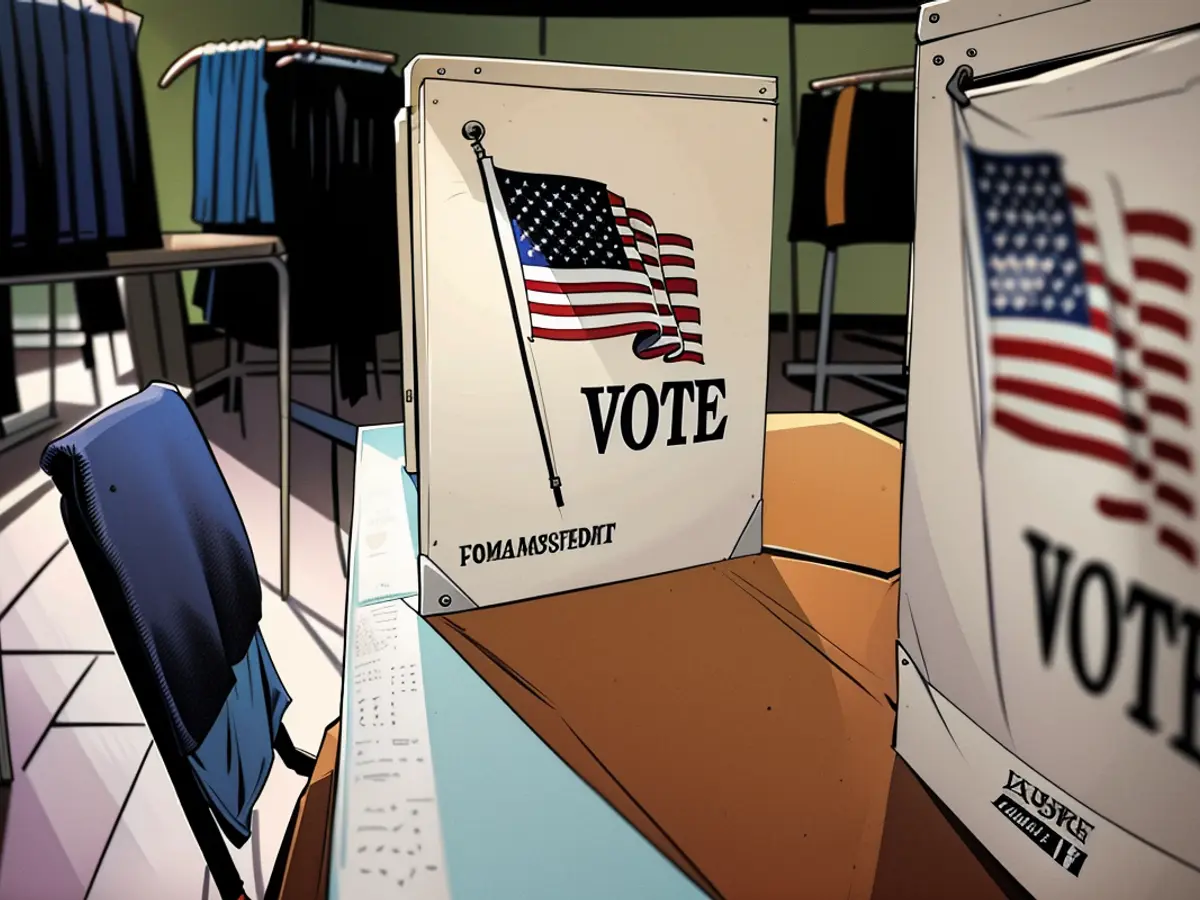Examining the Facts: Trump's Continual Misconceptions Regarding 'Paper Ballots'
To sort out this fabricated issue, Trump has proposed a four-step strategy: The U.S. should transition to solely using paper ballots, demand evidence of citizenship for voter registration, require voters to present ID at polling stations, and abolish mail-in voting by conducting the entire election in-person on a single day.
Experts in voting and election management may debate the benefits of requiring citizenship proof and ID for voters. Moreover, mail-in voting, which is frequently utilized by both Democrats and Republicans, is unlikely to disappear.
Trump's assertions regarding "paper ballots" have left voting specialists and election officials baffled – as the majority of voters across the nation already utilize paper ballots.
Fact Check: Trump's call for the U.S. to switch to "paper ballots" is illogical. According to data from Verified Voting, which tracks election equipment in every county, more than 98% of voters reside in jurisdictions that produce full and auditable paper trails.
Trump frequently mentions his four-point plan during discussions about election integrity. He has either explicitly or implicitly mentioned his "paper ballots" claim numerous times this year alone.
"We'll make our elections truthful and just, so people will leave knowing that their votes have been counted," Trump declared at a rally in Potterville, Michigan in August. "We'll have free and fair elections. Ideally, we'll use paper ballots, same-day voting, proof of citizenship – this is major – and voter ID."
During an interview last month, Trump suggested that using paper ballots could "solve this problem" related to mass fraud. At a rally in Johnstown, Pennsylvania, he reiterated this idea. He also made this statement in Montezuma Pass, Arizona.
Verified Voting, a nonpartisan organization that has advocated for the replacement of paperless voting systems with in-person polling sites for two decades, has successfully encouraged numerous counties to adopt such policies. Despite claims from Trump and others, the US no longer needs paper ballots, according to the group's representatives.
"This is quite peculiar and I don't understand it," said Mark Lindeman, the group's director for policy and strategy. "Almost everybody votes using paper ballots. Anyone who believes that we need paper ballots is highly likely to be voting using paper ballots themselves."
A mere 1.4% of registered voters reside in counties that lack a paper trail for their in-person ballots, according to Verified Voting's data. If they vote by mail, however, a paper trail is created. These exceptions include most of Louisiana and a few Texas counties.
For the remaining 98.6% of voters, there are paper trails that can be examined during post-election audits or recounts.
In about 70% of counties, registered voters physically mark their choices on paper ballots. Another 25% of voters use "ballot-marking devices," which involve selecting candidates on a touchscreen or interface and then producing a paper ballot. Lastly, 5% of voters utilize electronic machines that record votes directly into the computer's memory. Despite the majority of these machines now producing paper trails, a few Texas counties and the entire state of Louisiana only store votes in the computer's memory.
The proportion of paperless counties has consistently decreased with each election cycle since 2000, according to Verified Voting's data.
Hamilton County, Ohio, which encompasses Cincinnati, switched to hand-marked paper ballots in 2006. According to elections director Sherry Poland, this system provides a "backup" and "redundancy," boosting confidence in the voting process.
"The trend is moving back, and everyone is realizing the importance of having a paper trial," said Poland, who is a Republican.
Following the 2016 election, battleground states such as Pennsylvania and Georgia transitioned away from paperless machines and began using systems with paper trails. Since 2020, Tennessee and several counties in New Jersey, Mississippi, and Texas have joined the effort as well.
Deceptive and illogical assertions about election procedures have adversely affected voter perceptions of election integrity, particularly among Republicans.
A majority of Trump supporters in Michigan, Arizona, and Pennsylvania now express "not at all confident" or "only a little confident" that their state's results will be accurately tallied, according to recent CNN polling data. Moreover, a significant portion of Trump supporters, as revealed in an ABC/Ipsos poll, have expressed their unwillingness to accept the election results.
"Twenty years ago, Verified Voting was established to eliminate paperless voting systems," Lindeman said.
"And now we've almost achieved that. We're left wondering why everyone isn't happier – we've accomplished something incredible together as a nation."
Despite Trump's repeated claims about switching to paper ballots, the majority of voters in the U.S. already utilize this method. (From the text)In light of this, it's worth questioning the political motivation behind Trump's persistent advocacy for paper ballots. (Following from the first sentence)








